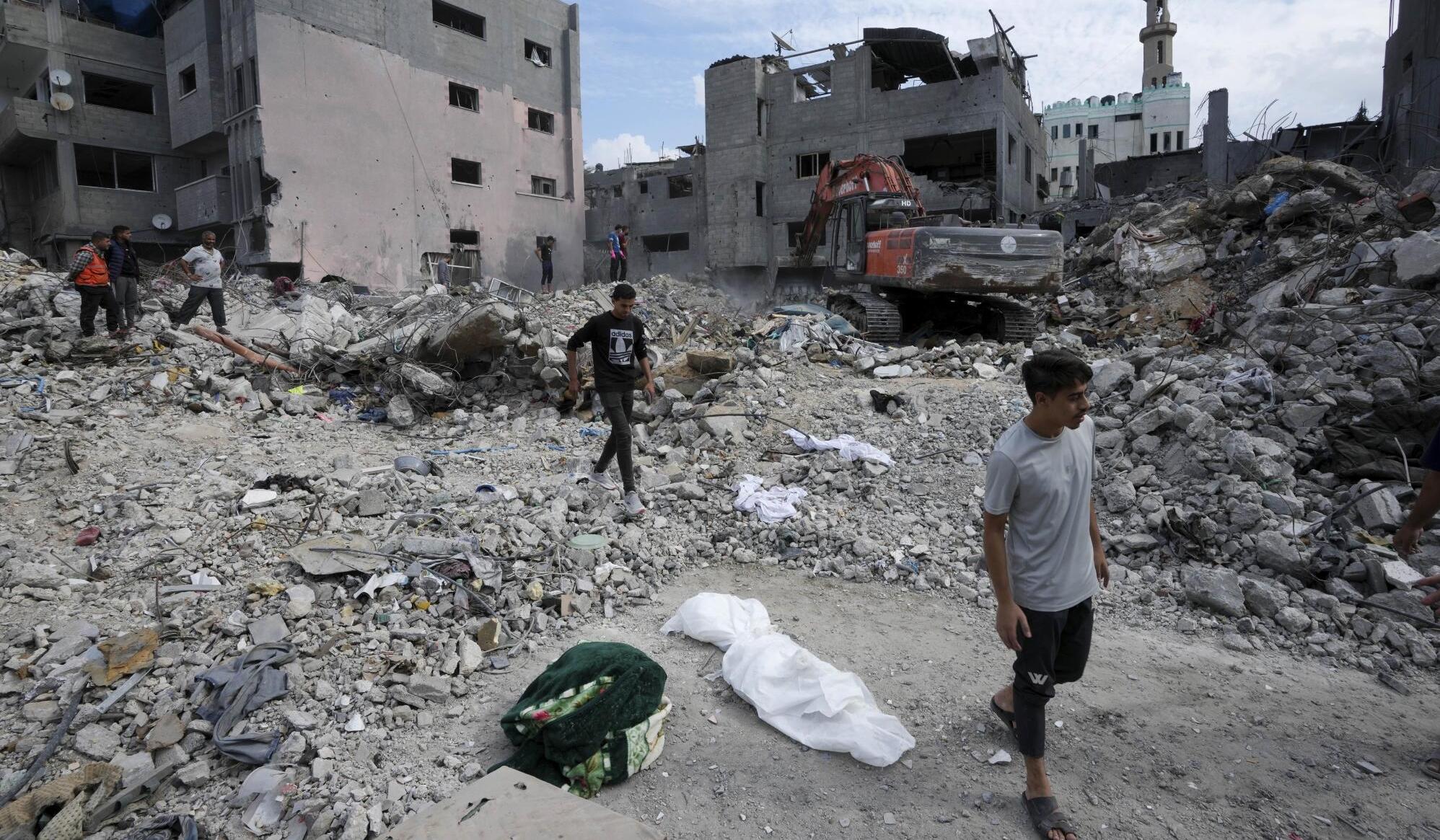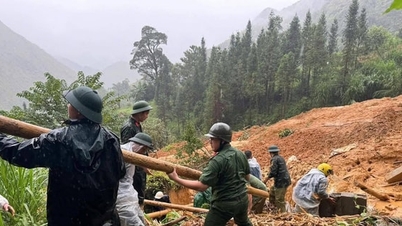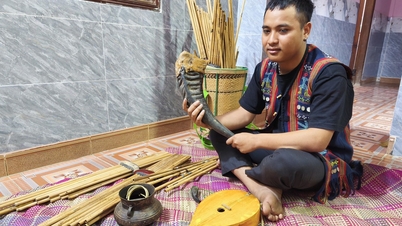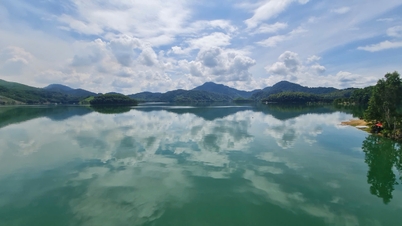All were killed in Israeli missile strikes. The bodies are still there, somewhere in the endless wasteland.
More than five weeks into Israel's war against Hamas, some streets look like graveyards. Officials in Gaza say they don't have the equipment, manpower or fuel to search for the living, let alone the dead.

Thousands of bodies are still buried in the rubble in Gaza. Photo: AP
Israel says its strikes target Hamas militants and infrastructure. However, the victims are often Palestinian civilians, many of whom remain unaccounted for.
Omar al-Darawi and his neighbors spent weeks searching for loved ones in the rubble of a four-story building in central Gaza. Forty-five people lived in the building; 32 were killed. In the first days after the attack, 27 bodies were recovered. Five people still missing are al-Darawi's cousins.
“The situation is getting worse,” said the 23-year-old former university student. “We can’t stop. We just want to find and bury them… before their bodies disappear forever in the rubble.”
According to Palestinian health authorities, more than 11,400 Palestinians have been killed, two-thirds of them women and minors. The UN humanitarian office estimates that about 2,700 people, including 1,500 children, are missing and believed to be buried in the rubble.
The disappearances have added to the grief of families in Gaza, a predominantly Muslim country. According to Islam, the dead must be buried quickly – within 24 hours if possible – with the body covered and facing Mecca.
Traditionally, the body is washed by family members with soap and scented water, and prayers for forgiveness are offered at the gravesite.
The search for bodies is particularly difficult in northern Gaza, where Israeli ground forces are battling Hamas militants. Hundreds of thousands of people have fled south, terrified by the fighting and warned by Israel to evacuate. In southern Gaza, Israeli air strikes and artillery shelling continue, meaning nowhere in the tiny territory is safe.
The Palestinian Civil Defense, Gaza's main search and rescue force, has had more than 20 personnel killed and more than 100 wounded since the war began, spokesman Mahmoud Bassal said. He said more than half of its vehicles were without fuel or damaged by the fighting.
On Tuesday, 28 days after an airstrike flattened his home, Izzel-Din al-Moghari found the body of his cousin. Twenty-four members of his extended family lived in the house in the Bureij refugee camp. All but three were killed. Eight remain missing.
“I am stunned. What we have been through is indescribable,” he said in anguish.
Mai Van (according to AP)
Source


![[Photo] Conference of the Government Party Committee Standing Committee and the National Assembly Party Committee Standing Committee on the 10th Session, 15th National Assembly](https://vphoto.vietnam.vn/thumb/1200x675/vietnam/resource/IMAGE/2025/10/15/1760543205375_dsc-7128-jpg.webp)




![[Photo] General Secretary To Lam attends the 18th Hanoi Party Congress, term 2025-2030](https://vphoto.vietnam.vn/thumb/1200x675/vietnam/resource/IMAGE/2025/10/16/1760581023342_cover-0367-jpg.webp)




































![[Video] TripAdvisor honors many famous attractions of Ninh Binh](https://vphoto.vietnam.vn/thumb/402x226/vietnam/resource/IMAGE/2025/10/16/1760574721908_vinh-danh-ninh-binh-7368-jpg.webp)


































































Comment (0)